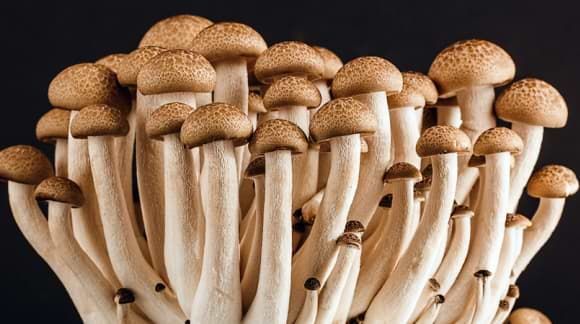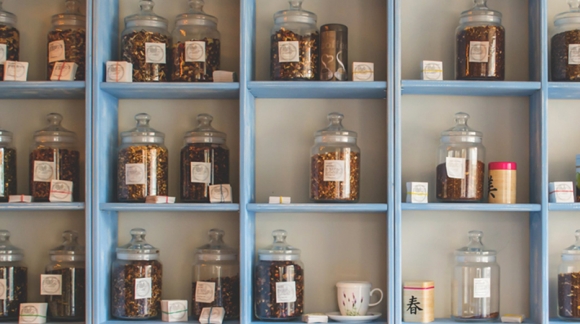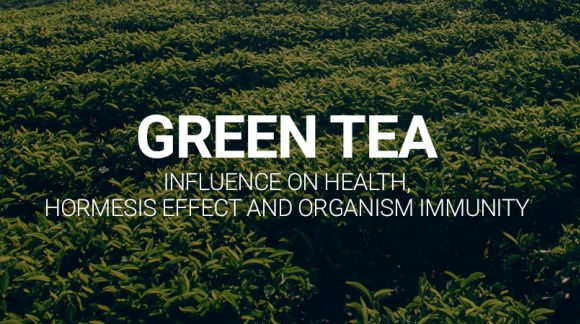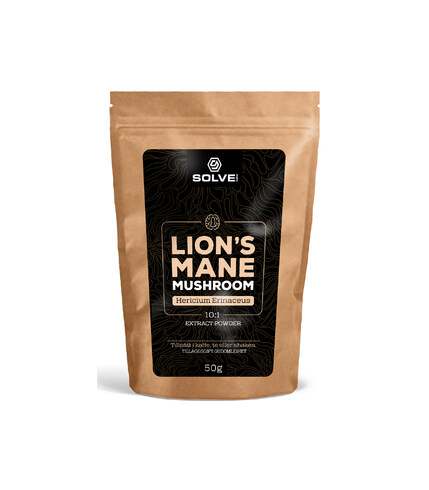Coffee - effect on health and mental functions

There is no doubt that coffee can be called the drink of the 21st century. Its effects and taste make it the most consumed drink in the world. In addition to the unusual taste, it is the main source of caffeine, which is attributed to various pro-health and performance effects. The article analyzes the achievements of science to date in the field of coffee and the impact of caffeine on health, physical performance and mental functions.
- A brief history of coffee
- Composition
- Consumption safety.
- Bulletproof coffee - the scientific basis
- Coffee and reduced mortality and diseases of the 21st centur.
- Fat reduction.
- Coffee and the improvement of results in endurance sports.
- How does little black coffee affect our brain's capabilities?
A brief history of coffee
Giving a population the period when coffee was discovered by mankind is extremely difficult. The story of this event is extremely complex and based on various threads. According to estimates, the first crops could appear in the 6th century CE. However, the first written record, known to date, dates back to the 10th century. The legend of mankind receiving this drink is associated with Islam. The word "coffee" is derived from the Arabic word "quahweh", which resulted from the fact that Muslims could not consume wine. The above term was supposed to be a poetic variation of the above-mentioned alcoholic drink, and thus its replacement. The first data on the discovery of wild-growing coffee come from around 850, and more precisely from the areas of Ethiopia.
Coffee composition
Coffee contains many different kinds of compounds. The most important ones are caffeine, antioxidants and diterpenes. They create a unique flavor that distinguishes it from other drinks. Moreover, they are mainly responsible for increasing the body's efficiency in terms of mental and physical abilities. When choosing the type of coffee, let's look for organic products. Coffee is one of the most sprayed crops in the world. When preparing coffee, we extract it with hot water, which in turn means that the chemicals used during coffee cultivation also go to our cup. Therefore, special attention should be paid to the quality and origin of the beans.
Consumption safety
Due to the constant increase of consumers of this drink, as a consequence, studies were conducted to analyze the safety of daily consumption of caffeine. According to the European Food Safety Authority, the daily dose should not exceed 400 mg. You can also find statements that you should not consume more than three cups a day, i.e. about 300 mg of caffeine. The side effects of caffeine overdose include palpitations, pain, insomnia and anxiety.
Pregnant or lactating women, according to experts, should not consume more than 200 mg of this compound during the day. However, there are also data that consumption of coffee during pregnancy may lead to an increased risk of low birth weight in the baby or premature birth.
It is also worth paying attention to the time of coffee consumption. According to the data, the mean plasma half-life of caffeine in the healthy population is on average 5 hours. However, the elimination phase of this compound from the body may take between 1.5 - 9.5 hours. This is due to the inherent individual variability of our organisms. The estimated point of maximum caffeinated coffee consumption will be 15:00. This is due to the fact that coffee, by stimulating the nervous system, can increase wakefulness and maintain intellectual activity, which should gradually decrease as closer to bedtime. Getting to know your own body will allow you to determine until what time you can drink this type of drink by shifting the maximum starting point of consumption so as not to suffer from insomnia.
Bulletproof coffee - scientific basics
This solution was promoted by Dave Asprey. Ghee butter and MCT oil were added to the coffee. Due to the relatively high fat content, bulletproof coffe is gaining more and more interest among people on a ketogenic diet. Analyzing all the confusion from a scientific perspective, it is difficult, however, to find any mention in the world of science relating to this type of drink. We certainly should not use this type of solution interchangeably with breakfast (and unfortunately such ideas appear on the Internet). However, the above components should be analyzed separately in this case.
As we know, coffee itself has a positive effect on the psychological and physical aspects of our body. Some scientific studies conducted with the use of ghee butter indicate that it may contribute to lowering the level of serum cholesterol, triglycerides, cholesterol esters and phospholipids. However, there are also antagonistic data. In addition, it is also worth noting that research is more often carried out on rats or other animals than on humans, therefore we have little reliable data on this subject.
The last of the mentioned ingredients is MCT oil. According to some scientific publications, it can contribute to weight loss without adversely affecting lipid profiles. There are also publications referring to the influence of MCT on the increase of exercise capacity, which is related to the improvement of the biogenesis of mitochondrial metabolism. It is also worth mentioning the research that may be important for people on a ketogenic diet. According to the last few publications, MCT-derived ketones can compensate for the glucose deficit in the brain. At the moment, however, there is no hard scientific evidence that would indicate what dose (MCT) allows you to obtain pro-health benefits. It should also be noted that there are publications according to which long-term use of oil in too large portions may have a negative effect on the body.
The whole above issue is interesting, but due to too many questions and ambiguities, they should now be treated as a curiosity. However, drinking bulletproof coffee from time to time should not negatively affect your health (at least there are currently no scientific contraindications for this).
Coffee and reduced mortality and diseases of the 21st century
The most important benefit is undoubtedly the observational data, according to which coffee consumption can reduce the risk of death by up to 10%. Obviously, this result cannot be considered in general terms. It is influenced by many different types of cause and effect phenomena, however, it is a good prognosis for coffee lovers.
An example is the research conducted by Grosso et al. (2018), who showed that coffee consumption among non-smokers reduces the risk of mortality due to the risk of cardiovascular diseases, ischemic heart disease or stroke. This means that coffee can prevent these diseases from occurring. Such strong relationships have not been shown in smokers. Interestingly, in this case, women benefit more than men. In addition, an important research work was the analysis of 1,109,272 people, conducted by Ding et al. (2014). They showed a significant reduction in the risk of type II diabetes in people who consumed 1 to 6 cups a day.
Fat reduction
To clarify the heading above, reference should be made to research conducted in the 21st century. According to scientists, caffeine improves weight maintenance through thermogenesis and fat oxidation. It is related to its influence on the sympathetic nervous system, which influences the regulation of energy balance and lipolysis (breakdown of lipids into glycerol and free fatty acids).
Coffee and the improvement of results in endurance sports
Consuming caffeinated coffee an hour before endurance training can be compared to the turbo boost that will be used during the race. Studies conducted on cyclists, triathletes and runners have shown a significant improvement in the body's performance. It is worth mentioning in this case that no improvement was shown in the results among people consuming decaffeinated coffee.
How does little black coffee affect our brain's capabilities?
Zhowu and wsp (2018) in Scientific Reports, published an extensive analysis of the effect of coffee on the cognitive abilities of our brain. The authors showed that coffee did not improve our memory or cognitive functions in the long term. There have been many more similar observations in recent years. That is why the influence of coffee and caffeine on short-term turbocharging of our mental abilities began to be analyzed in more detail. A detailed analysis of various types of solutions has shown that coffee can affect a short-term increase in our cognitive abilities. Importantly, it has been shown that it improves the performance of episodic memory, working memory, concentration level and reaction time, which was associated with drinking coffee with and without caffeine. This means that the positive effect on our brain should not be seen in the caffeine itself, but rather in the bioactive compounds contained in coffee, causing the above effect.

Bibliography:
Chamma CM, Bargut TC, Mandarim-de-Lacerda CA, Aguila MB, A rich medium-chain triacylglycerol diet benefits adiposity but has adverse effects on the markers of hepatic lipogenesis and beta-oxidation, Food & Function, 8(2), 2017, s. 778 – 787.
Ding M, Bhupathiraju SN, Chen M, van Dam RM, Hu FB., Caffeinated and decaffeinated coffee consumption and risk of type 2 diabetes: a systematic review and a dose-response meta-analysis, Dabetes Care, 37(2), 2014, s. 569 – 586.
Grosso G, Micek A, Godos J, Sciacca S, Pajak A, Martínez-González MA, Giovannucci EL, Galvano F., Coffee consumption and risk of all-cause, cardiovascular, and cancer mortality in smokers and non-smokers: a dose-response meta-analysis, European journal of epidemiology, 31(12), 2016, s. 1191 – 1205.
Harpaz E, Tamir S, Weinstein A, Weinstein Y., The effect of caffeine on energy balance, Journal of Basic and clinical physiology and pharmacology, 28(1), 2017, s. 1 – 10.
Hodgson AB, Randell RK, Jeukendrup AE, The metabolic and performance effects of caffeine compared to cofce Turing endurance exercise, PlosOne, 8(4), 2013.
Ivy JL, Kammer L, Ding Z, Wang B, Bernard JR, Liao YH, Hwang J., Improved cycling time-trial performance after ingestion of a caffeine energy drink, International journal of sport nutrition and exercise metabolism, 19(1), 2009, s. 61 – 78.
Karandikar Y.S., Bansude A.S., Angadi E.A., Comparision between the effect of cow glee and butter on memory and lipid profile of wistar rats, Journal of Clinical & Diagnostic Research. 2016, 10(6).
Mumme K, Stonehouse W., Effects of medium-chain triglycerides on weight loss and body composition: a meta-analysis of randomized controlled trials, Journal of the Academy of Nutrition and Dietetics, 115(2), 2015, s. 249 – 263.
Mumme K, Stonehouse W., Effects of medium-chain triglycerides on weight loss and body composition: a meta-analysis of randomized controlled trials, Journal of the Academy of Nutrition and Dietetics, 115(2), 2015, s. 249 – 263.
O'Keefe JH, DiNicolantonio JJ, Lavie CJ., Coffe for cardioprotection and longevity, Progress in cardiovascular diseases, 61(1), 2018, s. 38 – 42.
Shukitt-Hale B, Miller MG, Chu YF, Lyle BJ, Joseph JA., Coffee, but not caffeine, has positive effects on cognition and psychomotor behavior in aging, Age, 35(6), 2013, s. 2183 – 2192.
Smith R.F., A history of cofce, Coffe, 1985, s. 1 – 12.
St-Onge MP, Ross R, Parsons WD, Jones PJ., Medium-chain triglycerides increase energy expenditure and decrease adiposity in overweight men, Obeisty Research, 11(3), 2003, s. 395 – 402.
Wang Y., Liu Z., Han Y., Xu J., Huang W., Li Z., Medium chain triglycerides enhances exercise endurance through the increased mitochondria biogenesis and metabolism, Plos One, 13(2), 2018, s. 1 – 11.










